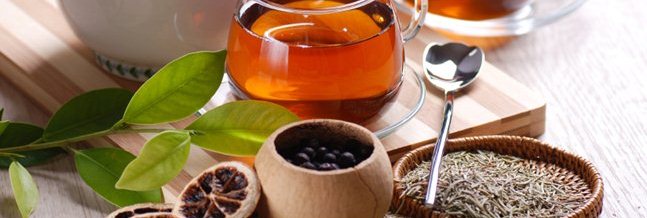Firstly what is Integrative Medicine?
Integrative Medicine is an approach to care that puts the patient at the center and addresses the full range of physical, emotional, mental, social, spiritual, and environmental influences that affect his or her health.
As Deepak Chopra explains really beautifully in this video, Integrative Medicine or IM is the blending of conventional and alternative (or complementary) medicines and therapies with the aim of using the most appropriate of either or both modalities to care for the patient as a whole.
It's not about choosing an alternative approach over a conventional one or vice versa, but taking the best of both and marrying them together to reap the best possible outcome for the patient.
This is not about having a fight over whether to treat cancer (or IBS or any condition) holistically or conventionally! It's about giving the patient options. For example, if a person chooses chemotherapy, surgery or radiation therapy as a cancer treatment, complementary therapy including herbs and acupuncture or yoga and supplements can be used to come in and mop up the unwanted side effects of those treatments.
Similarly, if the patient chooses not to undergo chemotherapy but wanted a completely natural approach, they could continue to be closely monitored with blood tests, and have an integrative doctor on hand to offer guidance and to intervene if or when necessary.
So what is Integrative Dietetics?
Integrative Dietetics is client-centred nutrition care within the integrative medicine construct. It takes into consideration the patient's many facets of wellbeing: physical, intellectual, social, emotional, vocational, spiritual, and ecological.
A greater AWARENESS of the connection between body, mind and spirit guides the client-centred approach.
Integrative dietetics seems to be very much entrenched in the USA (compared to Australia where it is practically non-existent). It's my fantasy that one day in Australia, we will have an equivalent to the DIFM (Dietitians in Integrative and Functional Medicine), who are an American group of "Registered Dietitian Nutritionists (RDNs), Dietetic Technicians, Registered (DTRs), and dietetic students and interns who practice in, or have specific interest in, an integrated and personalised approach to nutrition, health, and healing."
According to their website, Integrative Nutrition practice centers around a holistic, “Food as Medicine” approach to wellness, using:
- Whole-food therapies
- targeted supplements, and
- mind-body modalities
How is an Integrative Dietetic Consultation different?
Integrative Medicine GPs and dietitians usually do a more thorough “holistic” assessment of their patient which includes:
1) clinical signs and symptoms of deficiencies (check stools, nails, hair, skin, etc) and blood tests
2) check for drug interactions with supplements, drug induced nutrient depletions
3) wellness check - diet, sleep, menstruation, muscle/joint pain, exercise
4) mental and emotional assessment - stress, mood, relationships, attitudes, belief systems
And then based on information gleaned from the above they would implement short term nutritional therapy which would involve changes to diet and also targeted nutraceutical supplements (nutrient/herb/functional foods; dietitians may consult the GP/pharmacist to discuss) to facilitate recovery or wellness e.g Flordis Iberogast to aid digestion/IBS or Magnesium for cramps etc.
The pre-consult intake form I ask my patients to fill out before seeing me is quite extensive to cover all of this vital information, and for some it can be a little overwhelming! However by filling out their details I start to get a snapshot of their lifestyle before I even meet them but also insight into what they're like as a person and how best we can work together. Yes this is more work for me but I feel that by the time the patient comes to see me, we already have an understanding.
I have an informal, pre-consult conversation via phone or email with most of my patients so this understanding is mutual and the working relationship already has a foundation. Connection and trust are so vital to healing.
When a patient first comes into a consult I can fill in the blanks, create a deeper more meaningful working relationship with the person, and get to work on creating a highly personalised diet strategy and/or plan for improving and healing their relationship to food.
My Inspiration:
I’ve read countless books and completed post-graduate training on nutritional supplementation, integrative and environmental medicine, herbal medicine, Ayurveda, TCM, homeopathy, massage, counselling, meditation, yoga, and all of them influence my approach, but these five are my biggest inspirations:
If Not Dieting, Then What? by Dr Rick Kausman
Healing with Wholefoods by Paul Pitchford
Quantum Supplements and anything by Dr Deanna Minich
The Yoga of Eating by Charles Eisenstein
Nourishing Wisdom by Marc David
Things I Love:
- my partner, family, and my friend “family”
- wandering through rainforests
- star gazing
- bushwalking, biking, yoga, AcroYoga, surfing, and dancing like a nutter when the mood strikes
- trying new restaurants and new recipes
- avocados, kale, ice cream, sweet potato wedges, macadamias, mango, watermelon, curries…I could go on!
- cutting my own hair
- sunshine and salt water
- painting and making clothes
- striving to be more eco-friendly
- massage
- anything involving play, bodypaint, fancy dress, or horrible 80s glam rock
- travelling to exotic tropical places
- making essential oil perfumes
- feeling deeply connected to other beings
- seeing patients proud of their transformation
- witnessing my own transformation :)


































 RSS Feed
RSS Feed



